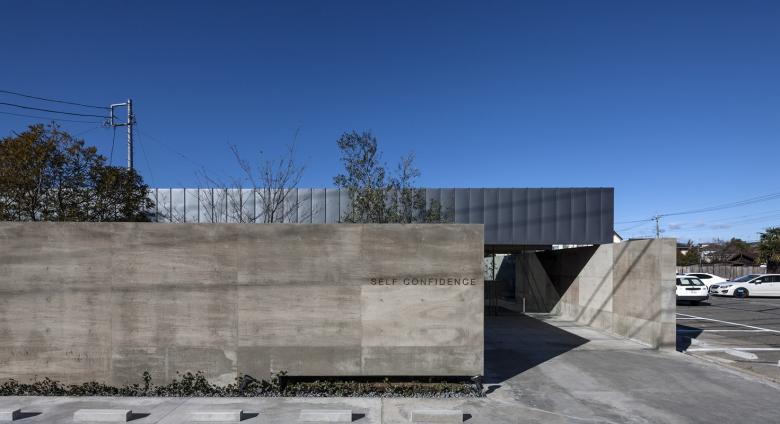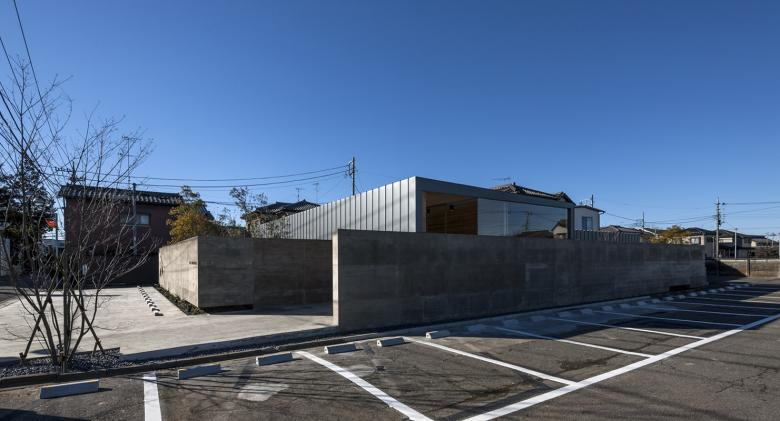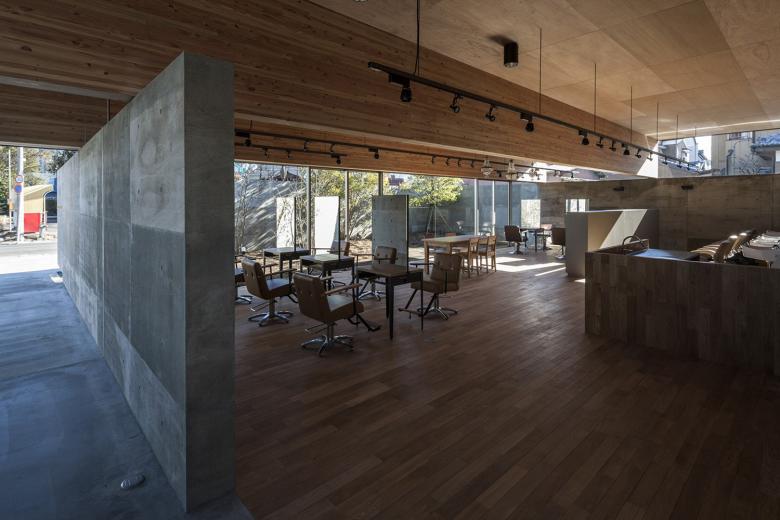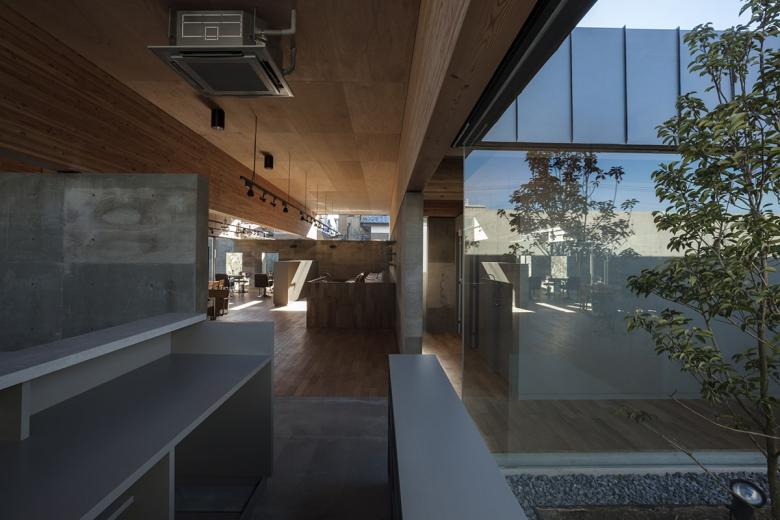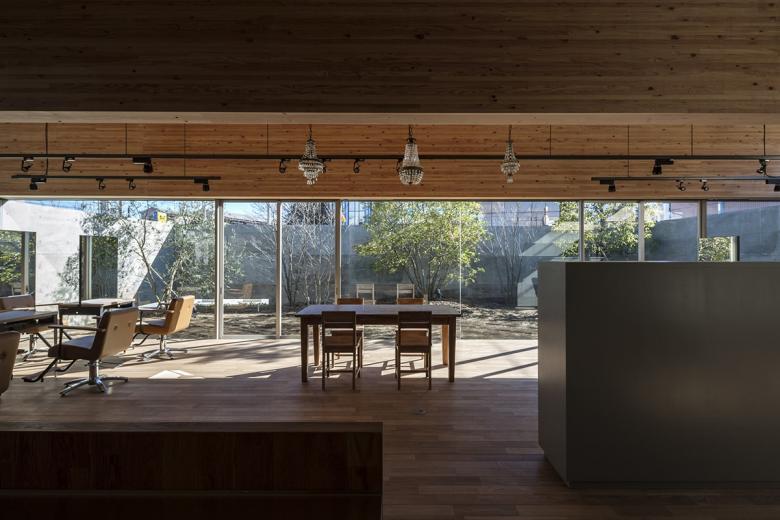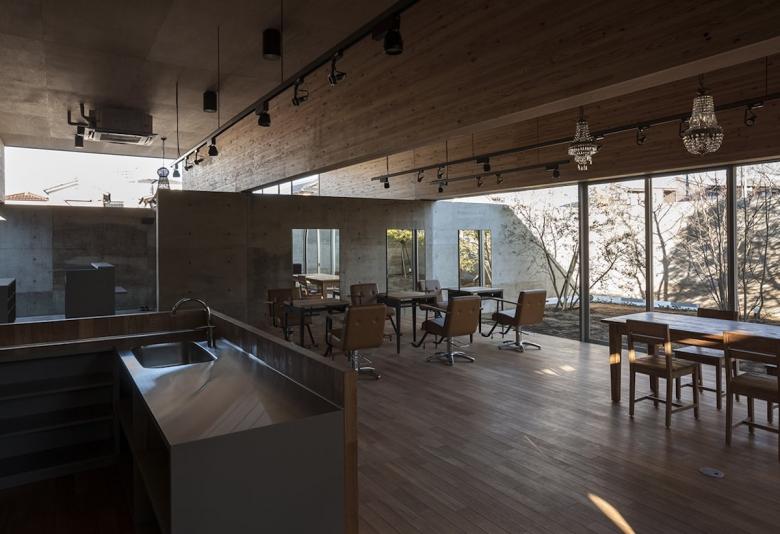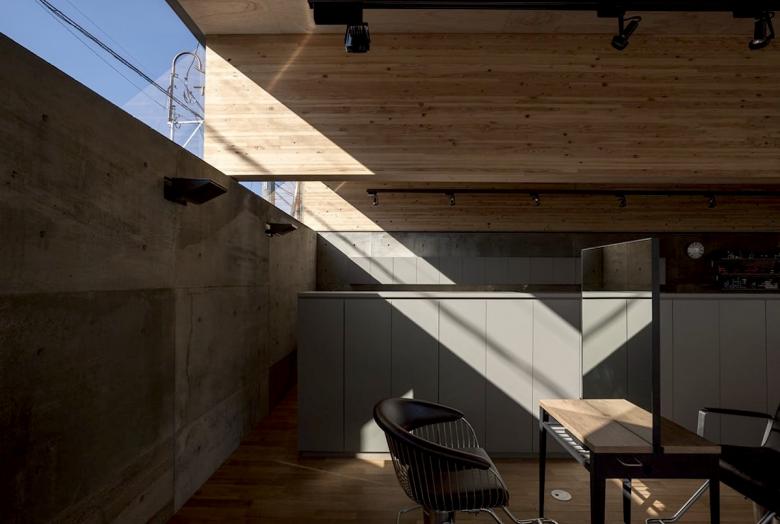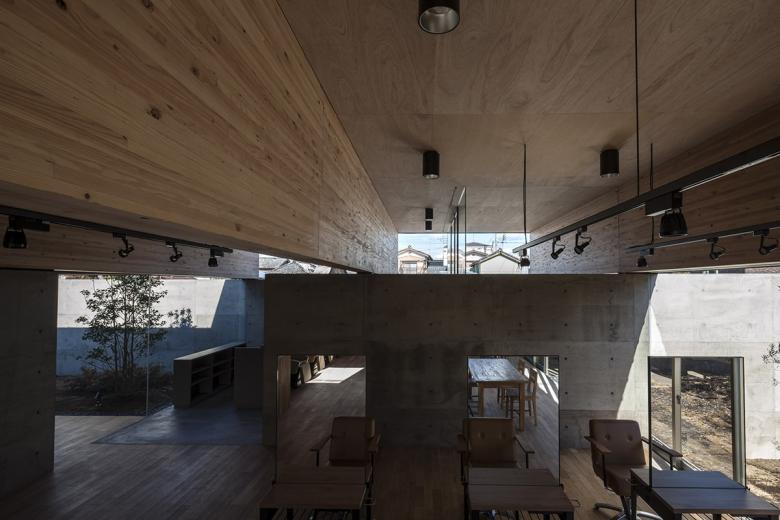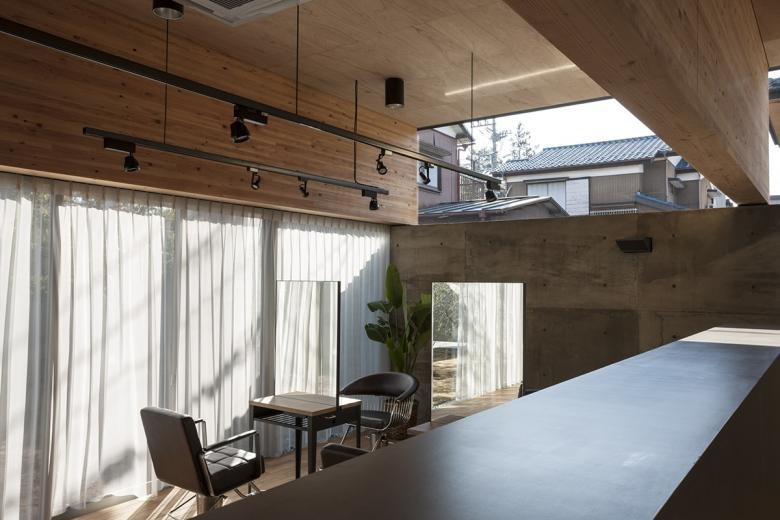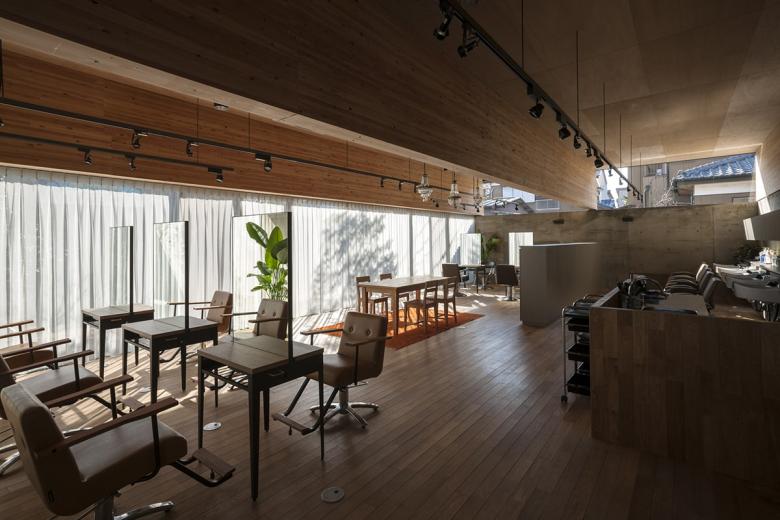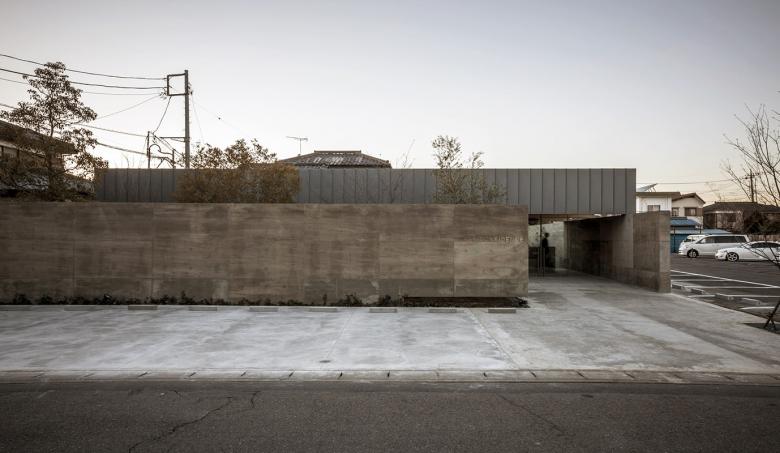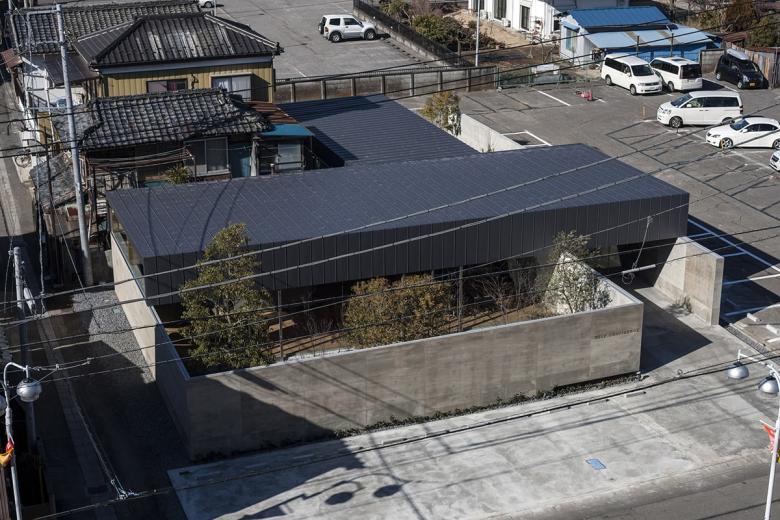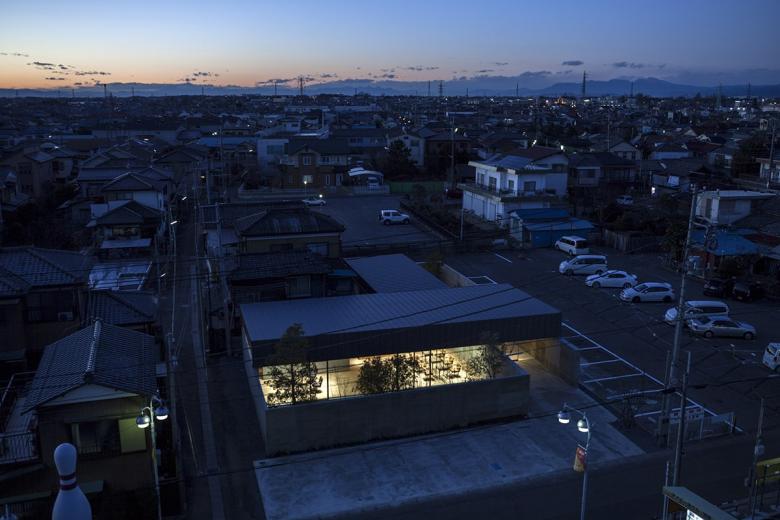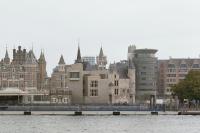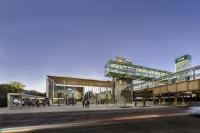Salon in Kazo
Saitama, Japan
Two constructs, two compositions
The site locates in the suburb of Kita-Kanto with population around 100,000. It is 5 minutes’ walk away from the station and surrounded by low-rise shops, parking, and dispersed commercial buildings of 4 or 5 floors. An indeterminate scene of so-called suburban city spread under the clear blue sky which is unique to Kita-Kanto. The client who was born in this region was also a local beautician with the best reputation. He used to work in a tenant building, therefore we were asked to design an independent beauty salon which would house a better future and become a perpetual culture base within the region as well.
The requirements were explained in seemingly contradictory terms: “to be new yet keep perpetuation”, “to be closed to daily life scenes while open to the upper-level nature”.
The resolution we applied here is to conduct overlap between “two constructions” and “two compositions”. Usually one construction is used to realize a space. But this answer is not good enough for two paradox questions. Instead, as a response to that complexity, we doubled the construction and composition in the design and therefore raise up the number of relationships among them.
In concrete, we achieved new yet perpetual construction means by valuing the large-sectional laminated timber board whose size has been growing at an unprecedented pace these years following the trend of city’s increasing appetite for wood. As we have easy access to material longer than 2m and thicker than 200 mm for now, timber has been already beyond “linear material”. Considering the fact that ceiling height can be ensured by one single board, it may be the appropriate time for us to consider timber as a “planar material”, or “solid mass” like reinforced concrete wall. Accordingly, the timber walls we prepared were almost as thick as concrete ones and we equally treated both of them in the tectonic sense.
Firstly, two RC walls are placed around the site as the boundary to enclose an “Oku” (deep and far) space and keeps a decent distance from the extremely common scenery nearby. Then, several straight timber walls span 13m are casually laid upon the RC walls, by which the interior is overlapped by a bright and clear space open to the transparent light and air of Kita-Kanto area.
This is how a bright and self-controlled beauty salon environment would be “closed yet open”. Operations of both “construction” and “composition” are quite simple in fact. What grant the design some unique quality are the idea of “less intentions”, “diverse consequences” of overlap between 2 constructions and 2 compositions, and their ratio and assortment.
Neither am I interested in “composition” alone nor “construction” alone. It is “something” concluded by their overlap.
